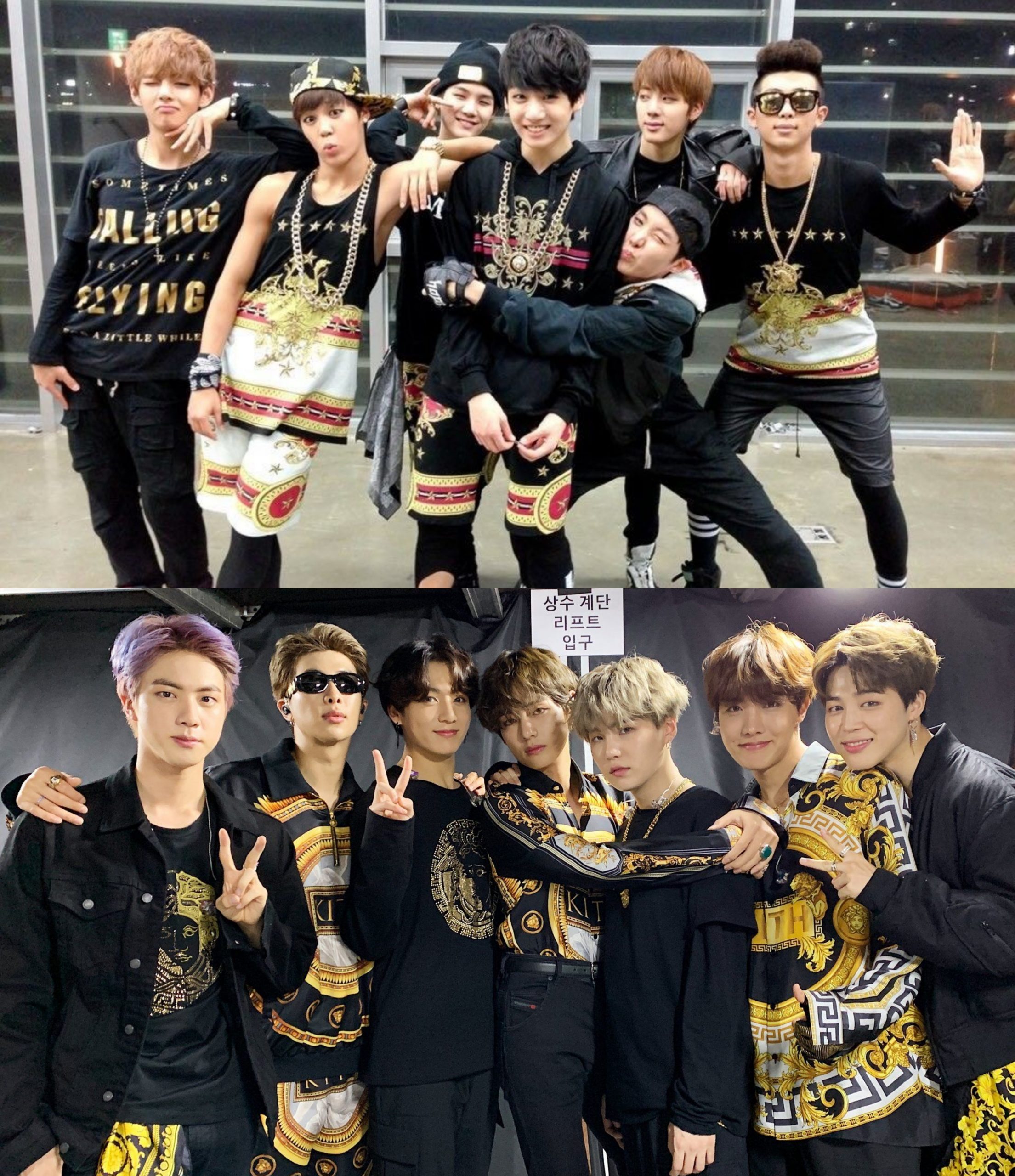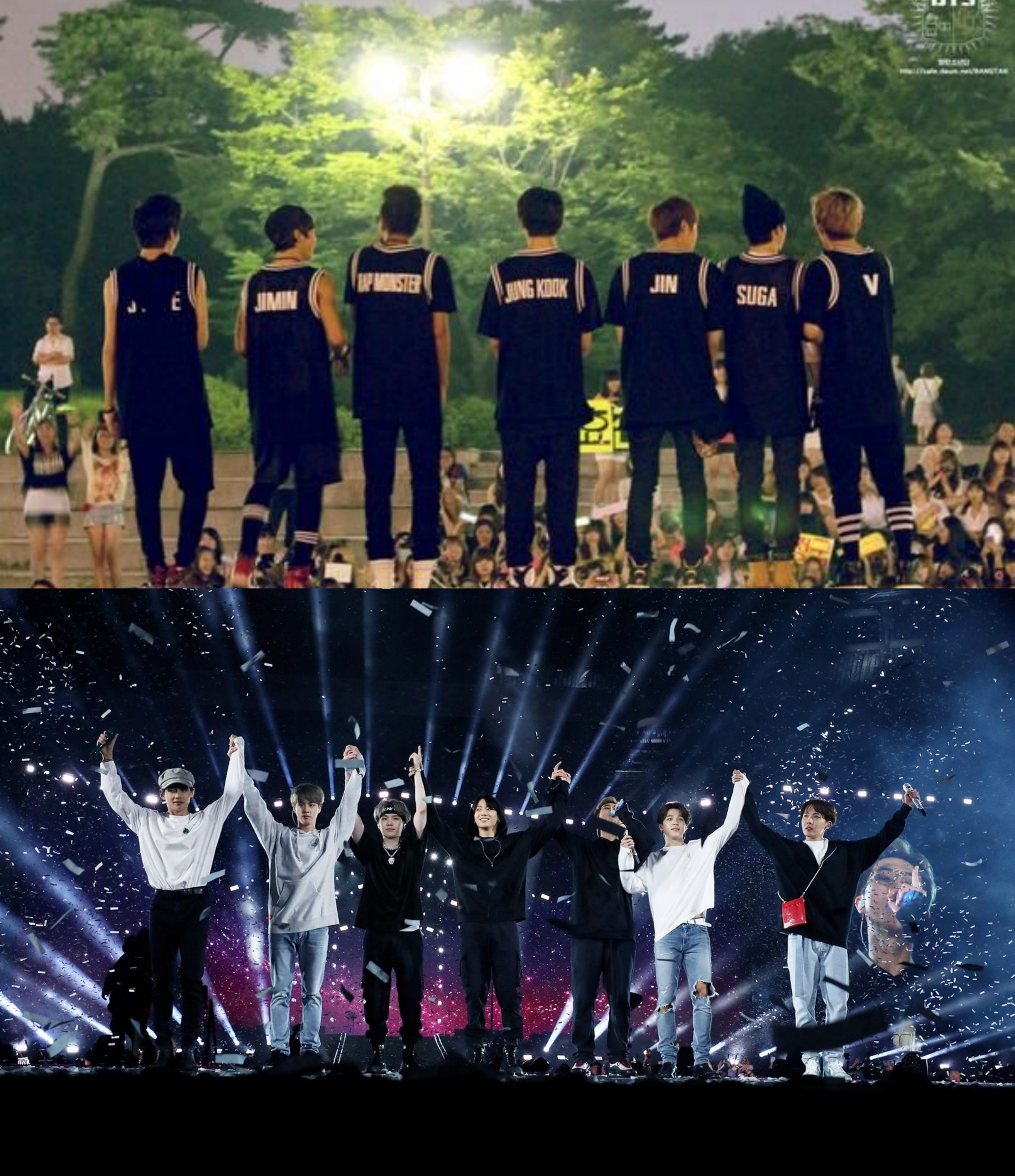From Rags to Riches: BTS’ Growth in 9 Years
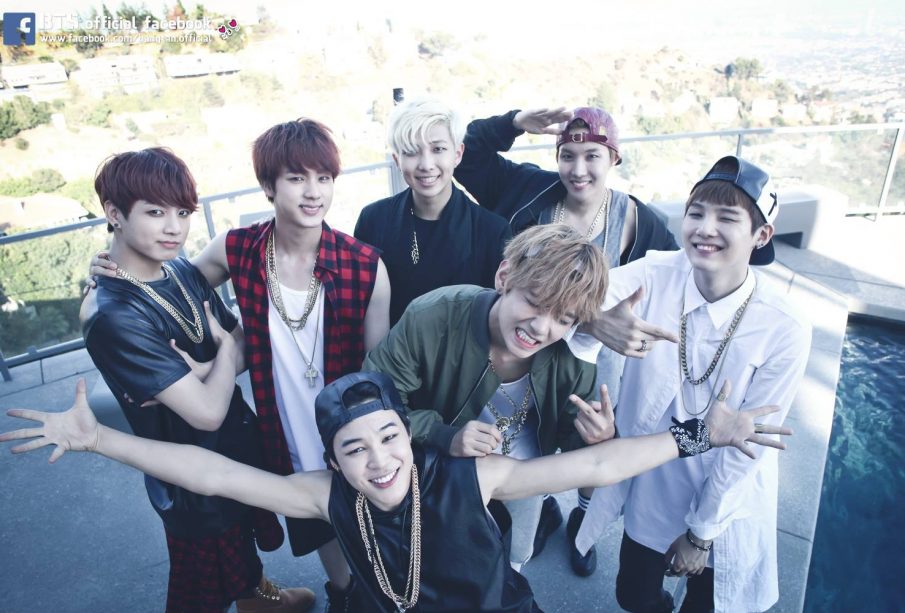
The past nine years for BTS have been quite the rollercoaster. Not only have they grown to enormous amounts of success worldwide but they’ve also gone through quite the change musically. It’s a well-known fact that BTS’ music has reached just about every genre you can imagine—from hard-hitting raps and emotional ballads to impactful pop pieces and rebellious hip-hop. If you’re patient enough to look through their multitude of songs, you’re bound to find one that you enjoy—no matter you’re preferred genre.
BTS’ growth in music and popularity throughout their nine years of being a group has undoubtedly paved the way for their success. As they hone in on their own personal style, their popularity only grows bigger and bigger.
Table of Contents
A Brief Overview of BTS’ Growth and Their Success
In the past few years, it’s hard to deny the success BTS has obtained. This includes their record-breaking “Butter” music video—holding the record for the highest number of views in the first twenty-four hours with over 108.2 million views—to their nomination at the Grammy Awards—they were the first Korean group act to achieve this feat.
Most recently, the group jumped to the number one spot for April 2022’s Top Tours according to Billboard. With only their four shows in Las Vegas, BTS earned the highest revenue of $35.9 million. You can read more about this feat in Billboard’s article here. Truly, this alone shows BTS’ growth the most—from handing out flyers for their free concert in 2013 to earning millions in just four shows…
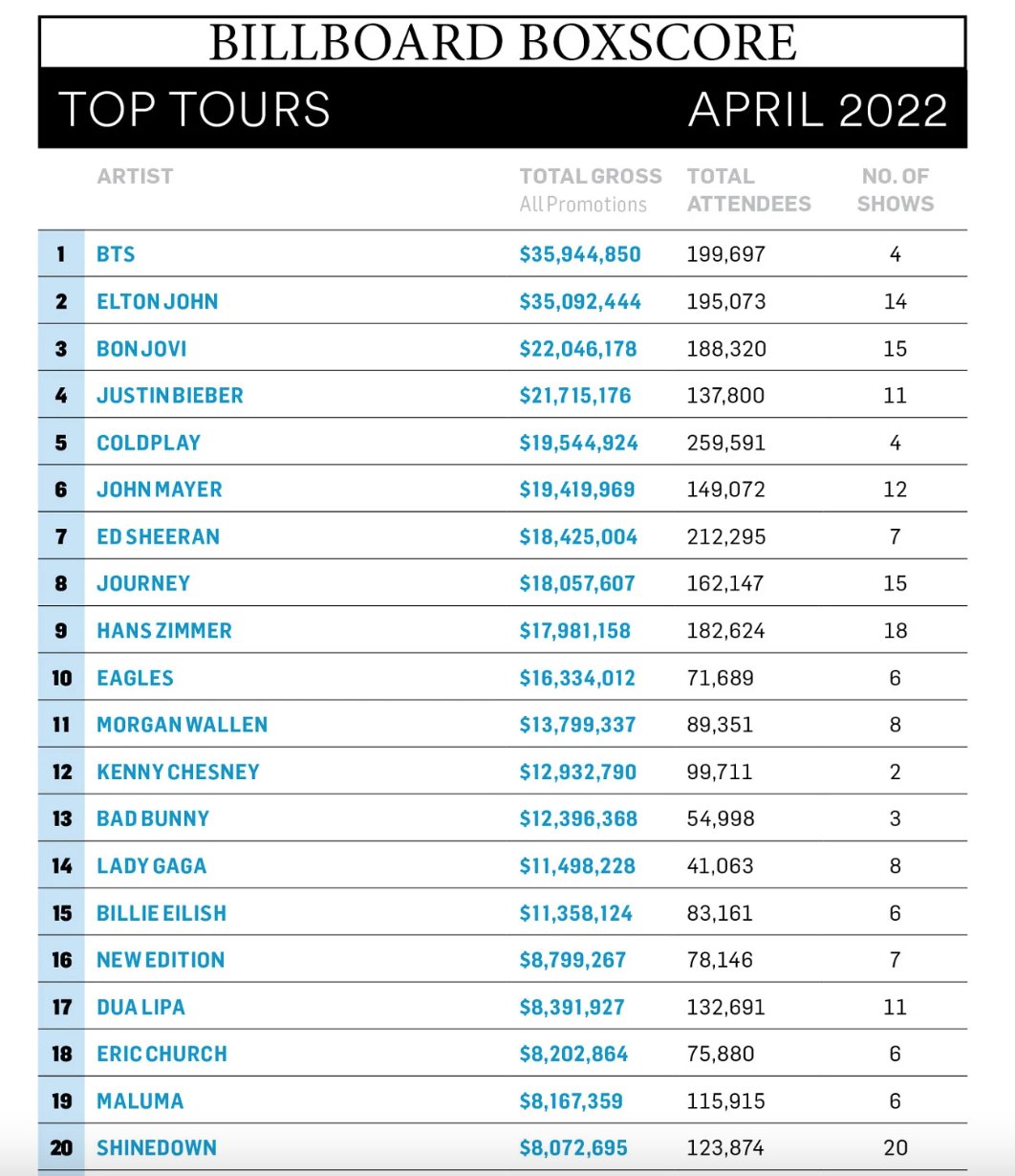
List from Billboard
Further, according to Spotify, BTS now has had a total of 25.8+ billion streams since they’ve been on Spotify, 50 million artist page followers, and 35+ million monthly listeners. They also are the first Asian act to join the Spotify Billions Club with Dynamite. Read the article Spotify released to celebrate the group’s upcoming album.
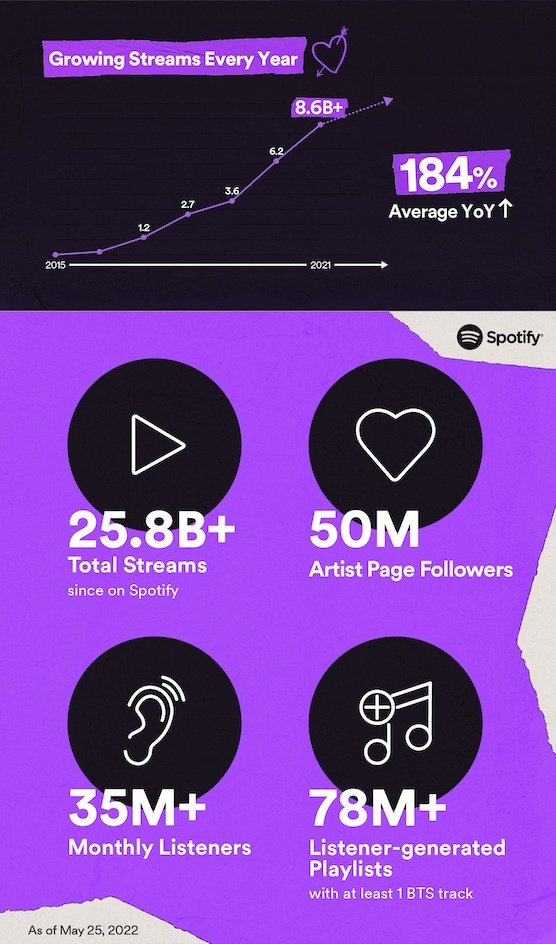
Image from Spotify
These records are just what the whole group has produced. But BTS’ growth hasn’t affected just the group as a whole, it’s also brought the individual members their own set of accomplishments—from the highest OST listens to Instagram followers, each member of BTS holds their personal record to be proud of.
BTS Then (Debut – 2017)
If you’ve read our blog last year for BTS’ eight-year anniversary, the “8 Years with BTS” one, then you know just how small BTS truly used to be.
Popularity
Like any other group from a small company, BTS had their struggles. They lived in a one-bedroom dorm room for quite a while, the room full of three bunk beds and a single bed to make them all fit. To see the bedroom better, you can see it on their reality show Rookie King on Viki with a VikiPass Plus account.
And even as they started promoting their music and releasing content, the group didn’t gain much recognition. In 2014, the group released their next reality show American Hustle Life where they learned what it meant to be hip-hop and completed various tasks. One of the more well-known tasks they had to do was market their own free concert. They had begged people to show up to their free show—only needing 200 people to be there. Hardly anyone they talked to gave them a second glance, they were nobodies after all.
Throughout the first few years of their career, BTS stayed as the underdog group. While they gained some recognition, they definitely couldn’t hold much to the competition.
On Twitter, the group first hit one million followers in June 2015. Member j-hope posted a celebratory photo to show this milestone.

Image from BTS’ Twitter
He continued to post celebratory photos for each milestone they reached (see them here: 2 million, 3M, 4M, 5M, 6M, 7M, 8M, and 9M). For their ten million followers on Twitter milestone, the entire group released a video to celebrate.
What’s fascinating to notice, though, is the amount of time it took them to reach these milestones. It took the group nearly two years to reach one million followers. Then it took another year for them to reach two million. However, it took them less than a month to jump from nine million to the ten million milestone. BTS’ growth by 2017 had surpassed their own expectations.
Nitty Gritty Details
In 2014 and 2015, BTS embarked on their first tour—The Red Bullet Tour—that took them all throughout Asia, Australia, North America, and South America. With both legs of the tour, the group performed roughly twenty-two shows. Altogether, this amounted to less than 100,000 fans in attendance (most venues averaging around 5,000 seats or less).
The group’s first album, 2 Cool 4 Skool, sold only 790 copies during the first week of its release (of course, it gained more sales as the group started promoting and charting).
Their 2017 tour—The Wings Tour—is already seen as a massive improvement, it shows BTS’ growth within those first few years. With a total of forty shows, the group performed for more than 500,000 fans. Each show held more than 10,000 fans, some even closer to the 20,000 range. A huge difference from their first tour in 2013, but not nearly as massive as they have nowadays.
Their Wings album received 500,000 pre-orders alone—200,000 more than their album before. The lead track (“Blood Sweat & Tears”) became the fastest K-pop music video to reach ten million views and the album went on to chart at number 26 on the Billboard 200 chart (making it the highest-ranked K-pop album on the chart at the time).
During this time of their career, BTS’ growth was slow but it was progressing more as time goes on. Many fans argue that the Wings album and Wings Tour felt like a turning point for the group, as if it was the first moment that showed BTS’ growth in popularity.
Music
At the beginning of BTS’ career, they were set to be a hip-hop idol group. Their sound was more rebellious than anything—they spoke of harsh realities, lacking dreams, and other relatable things to young people around the world. They wanted to be a voice for those experiencing the misunderstandings that come with being young.
Their sound was heavier by default. More deeply rooted raps, heavier beats, and emotionally charged lyrics. Though they still have these qualities today, there’s a maturity to them now. Back then, the group dressed in all black and pushed against “the system.”
They were different and they didn’t care.
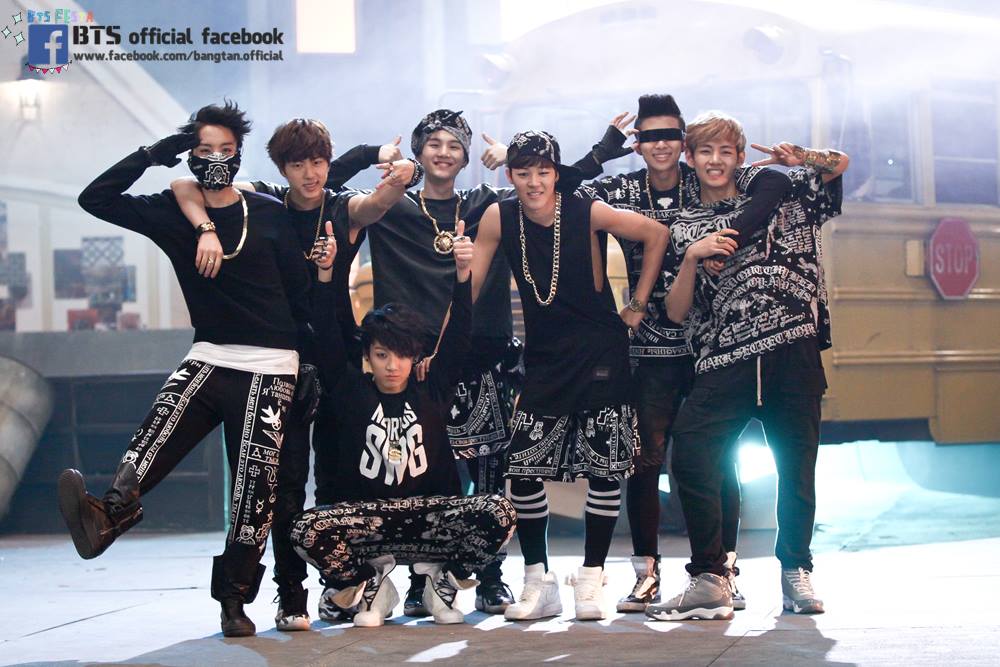
Image from BTS’ Official Facebook
By the time 2017 rolled around, BTS had already started evolving their musical tone. It’s not that they were changing who they were—they still wrote emotional lyrics, they still incorporated intense raps into their songs, and they still made sure the beats would hit hard—but they were finding who they wanted to be.
It seemed that they were less angry at the world. They dressed in softer tones—far less black clothing than they had at debut—and they sang more ballads to express themselves. Instead of being the rebelling hip-hop group, they were a group painting their own musical masterpiece. They found themselves in the ever-changing style of their music. BTS’ growth in music throughout these few years showed us how they evolved into something amazing.
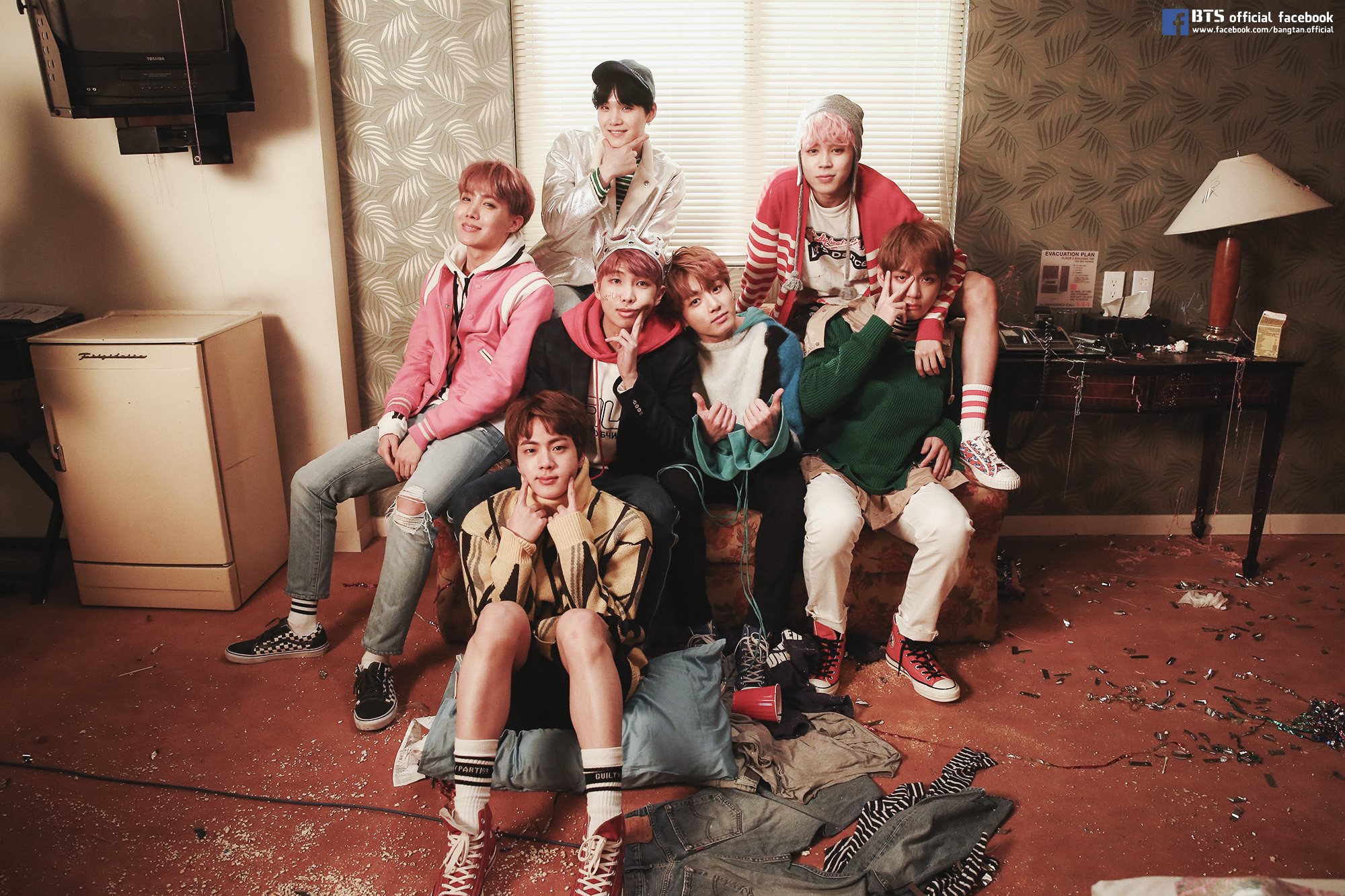
Image from BTS’ Official Facebook
BTS Now (2017 – Present)
Starting with 2017, BTS’ growth has jumped leaps and bounds. Not only has their popularity skyrocketed, but they have grown into themselves so much that we don’t attribute them to a specific genre anymore—they are simply BTS.
Popularity
As mentioned earlier, BTS first hit ten million followers on Twitter in 2017. It took them nearly four years to hit ten million; however, in just about two years, the group hit twenty million followers. Halfway through 2019, the group became the first Korean account to surpass the twenty million follower milestone. Further, in just over a year, the group hit thirty million followers.
Today, BTS has a total of 46.2 million followers on Twitter—making them one of the most-followed Korean groups on Twitter. Every day, that number is increasing immensely. Before we know it, the group will reach fifty million followers.
Another milestone that shows BTS’ growth in popularity is their involvement in western award shows. While the group doesn’t need validation from the western music industry, it is quite an impressive feat to take it over so completely. They are truly the first Korean act to continuously grow in popularity throughout western countries.
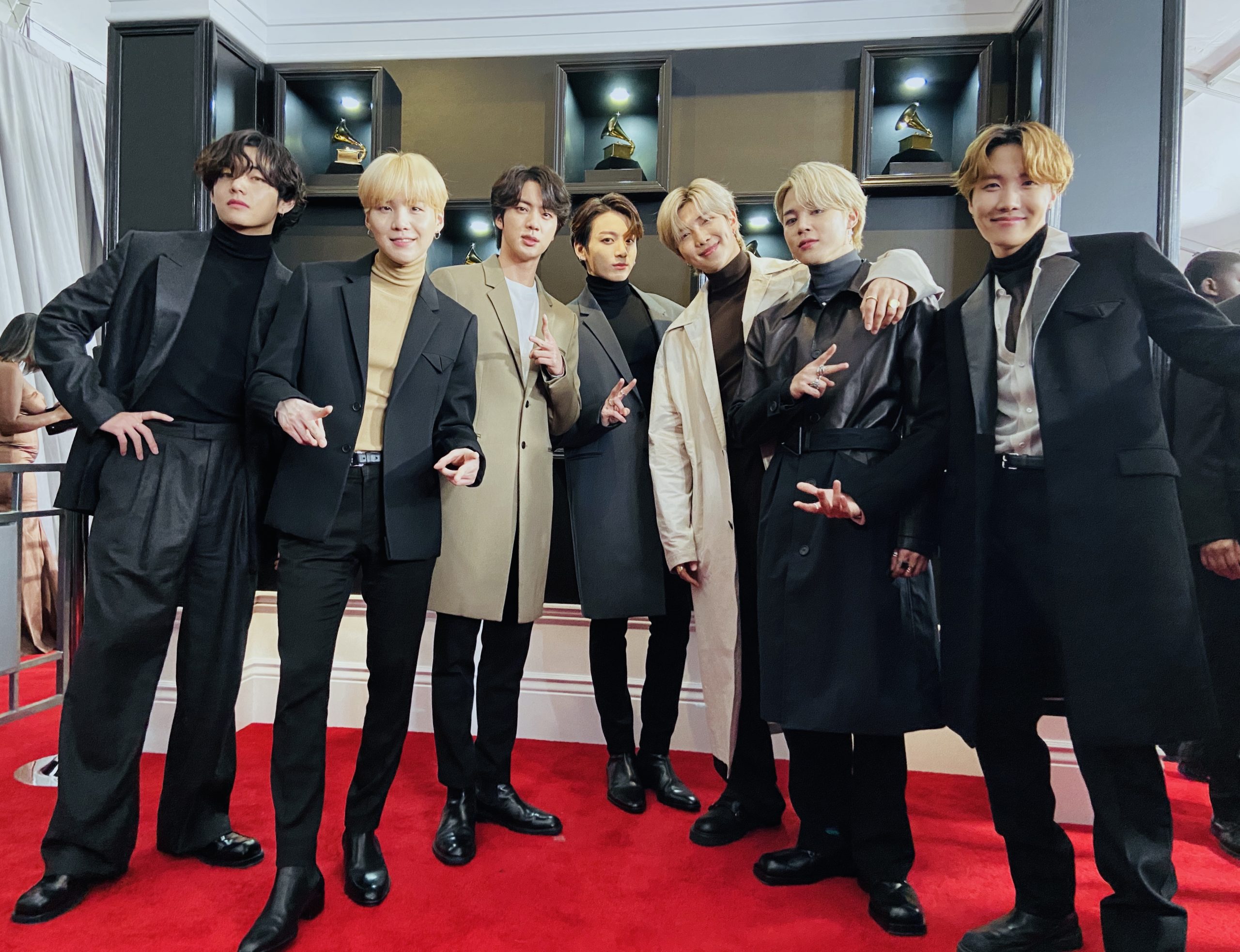
Image from BTS’ Official Twitter
From their first appearance at the Billboard Music Awards (BBMAs) in 2017 to their recent Grammy Performance, BTS has appeared in just about every music award show and talk show imaginable in America. While the music scene in western countries didn’t quite accept BTS right away, the group kept winning awards and gaining more attention.
Nitty Gritty Details
For their 2018 Love Yourself World Tour, the group performed a total of sixty-two shows to more than two million fans. The first leg of their tour included mostly arenas and a couple stadiums. However, the extension of the tour—the Love Yourself: Speak Yourself tour—was a full stadium tour. The last leg of the show—twenty shows altogether—amazing nearly one million fans by itself.
Their 2017 EP Love Yourself: Her became the first K-pop album to surpass one million pre-orders. It also broke their previous record on the Billboard 200 chart, debuting at the number seven spot.
But BTS’ growth from 2017 was only getting started. The group’s 2020 album Map of the Soul: 7 album sold over 3.3. million copies within its first week. And their next album BE over 2.2 million copies within the first week. Both earned a spot on music charts for their sheer mass of sold copies.
BTS’ success with their Permission to Dance: On Stage in Las Vegas shows is proof enough of how successful BTS has become now. They easily became the number one spot for concert revenue in April 2022 with just four concerts.
Music
As we began seeing with their music up to 2017, BTS really starting honing in on their own personal music style. They no longer pushed for strong, impactful songs if it wasn’t what they wanted to express themselves. Instead, BTS started veering in a music direction they wanted to.
In a 2020 interview with John Ochoa from the Grammys, the boys were asked which musical genre they wanted to pursue next. Member SUGA responded by saying, “I think it’s less and less meaningful to divide music into genres.” Other members agreed, saying that their genre is simply BTS.
A year later, the group did another interview with the Grammys (this time with Ashlee Mitchell). They were asked this time how they felt about the K-pop genre they were labeled under. RM responded, “K-pop is a term used to refer to popular Korean music, but at some point, it became a genre of its own. It’s actually quite difficult to define what K-pop is.”
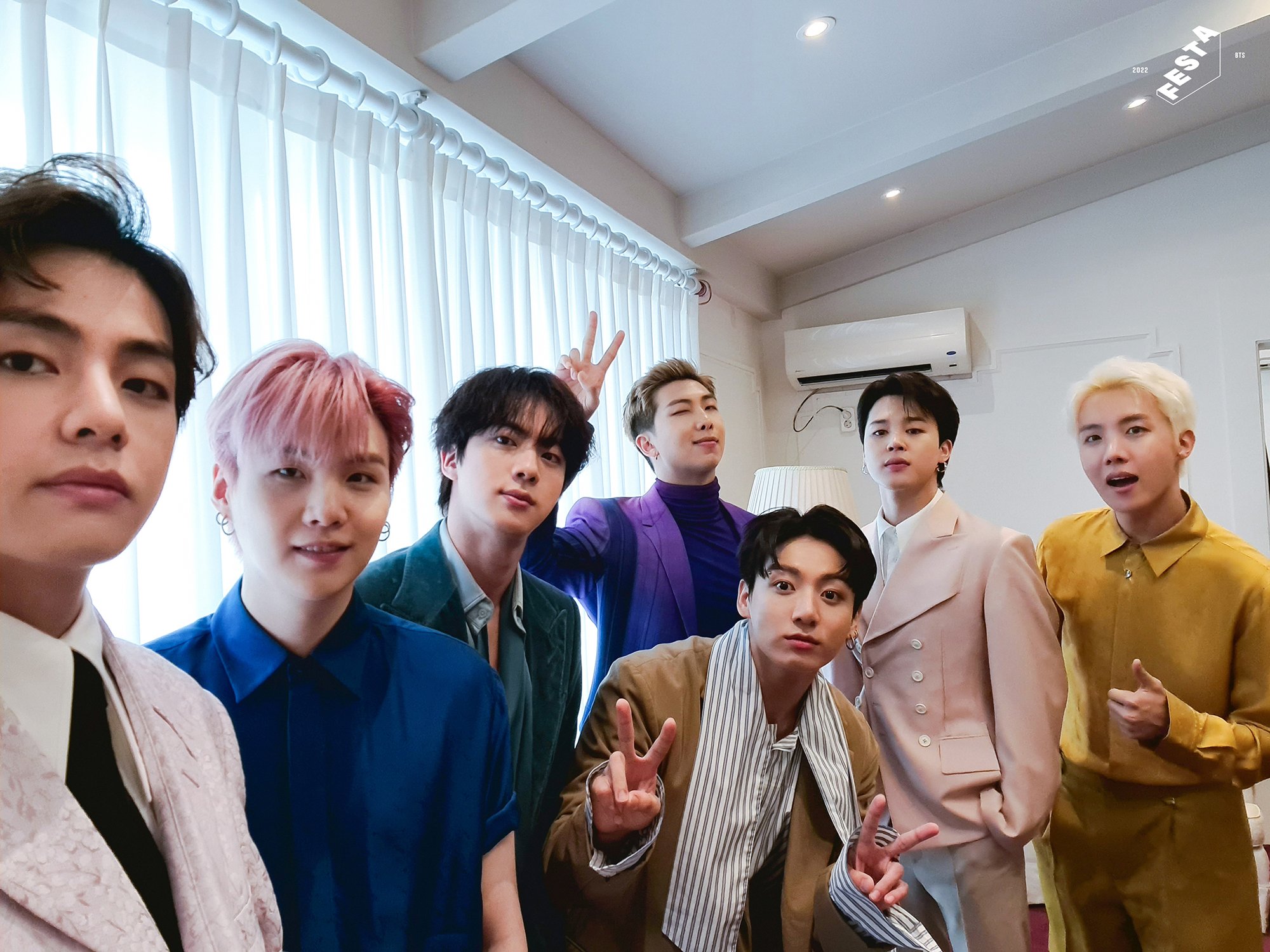
Image from BTS’ Official Facebook
So, overall, BTS’ music has grown into something more themselves. The emotions they feel, the passion they express, and the struggles they face, their music is something that conveys everything they want to tell their fans. And their new album coming out in just a few days—PROOF, an anthology album—shows just how much their music has evolved over time.
Is there a point BTS’ growth seemed to start ramping up?
Honestly, not quite. Though 2015 is an important year to BTS and to ARMY—because it was the year where they earned their first music show win—there weren’t any major changes at that point.
We could consider 2017 another major year for the group. After their appearance at the BBMAs, BTS started gaining major attention across the world. As we saw in their follower count on Twitter, they increased by the millions far quicker after 2017 than they did before it.
Overall, BTS’ growth has been massive throughout the nine years they’ve been a group. Between their musical growth and their popularity increase, there seems to be no limit to the group’s success. With their upcoming comeback just a few days away, it’ll be truly telling to see the growth they go through this time.
If you’d like to get a bit more backstory on the beginning of BTS, feel free to check out this article we put out about it! And keep an eye on our K-Pop Category as we release more blogs during the rest of this special BTS Week event. Our next blogs will go into more details about their newest album, so make sure to check back for those.




